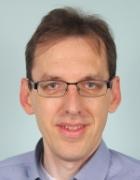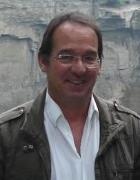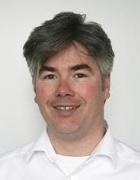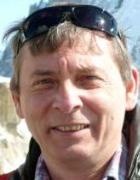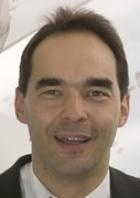Technische Physik
Prof. Rudolf Gross, Prof. Stefan Filipp
Forschungsgebiet
The research activities of the Walther-Meißner-Institute are focused on low temperature solid-state and condensed matter physics. The research program is devoted to both fundamental and applied research and also addresses materials science, thin film and nanotechnology aspects. With respect to basic research the main focus of the WMI is on
- superconductivity and superfluidity,
- magnetism, spin transport, and spin caloritronics,
- quantum phenomena in mesoscopic systems and nanostructures,
- quantum technology and quantum computing,
- and the general properties of metallic systems at low and very low temperatures.
The WMI also conducts applied research in the fields of
- solid-state quantum information processing systems,
- superconducting and spintronic devices,
- oxide electronics,
- multi-functional and multiferroic materials,
- and the development of low and ultra low temperature systems and techniques.
With respect to materials science, thin film and nanotechnology the research program is focused on
- the synthesis of superconducting and magnetic materials,,
- the single crystal growth of oxide materials,
- the thin film technology of complex oxide heterostructures including multi-functional and multiferroic material systems,
- the fabrication of superconducting, magnetic, and hybrid nanostructures,
- and the growth of self-organized molecular ad-layers.
The WMI also develops and operates systems and techniques for low and ultra-low temperature experiments. A recent development are dry mK-systems that can be operated without liquid helium by using a pulse-tube refrigerator for precooling. Meanwhile, these systems have been successfully commercialized by the company VeriCold Technologies GmbH at Ismaning, Germany, which meanwhile has been acquired by Oxford Instruments. As further typical examples we mention a nuclear demagnetization cryostat for temperature down to below 100µK, or very flexible dilution refrigerator inserts for temperatures down to about 20mK fitting into a 2inch bore. These systems have been engineered and fabricated at the WMI. Within the last years, several dilution refrigerators have been provided to other research groups for various low temperature experiments. The WMI also operates a helium liquifier with a capacity of more than 150.000 liters per year and supplies both Munich universities with liquid helium. To optimize the transfer of liquid helium into transport containers the WMI has developed a pumping system for liquid helium that is commercialized in collaboration with a company.
Adresse/Kontakt
Walther-Meißner-Straße 8
85748 Garching b. München
+49 (89) 289 - 14202
Fax: +49 (89) 289 - 14206
Mitarbeiterinnen und Mitarbeiter der Arbeitsgruppe
Professorinnen und Professoren
| Photo | Akad. Grad | Vorname | Nachname | Raum | Telefon | |
|---|---|---|---|---|---|---|
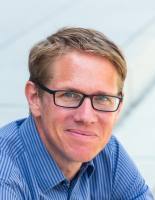
|
Prof. Dr. | Stefan | Filipp | – | +49 89 289-14201 | |
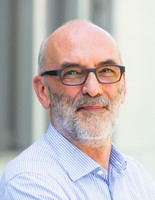
|
Prof. Dr. | Rudolf | Gross | – | +49 89 289-14249 |
Sekretariat
| Photo | Akad. Grad | Vorname | Nachname | Raum | Telefon | |
|---|---|---|---|---|---|---|

|
Emel | Dönertas | – | +49 89 289-14202 |
Wissenschaftlerinnen und Wissenschaftler
Andere Mitarbeiterinnen und Mitarbeiter
| Photo | Akad. Grad | Vorname | Nachname | Raum | Telefon | |
|---|---|---|---|---|---|---|

|
Prof. Dr. | Dietrich | Einzel | – | +49 89 289-14230 | |

|
Astrid | Habel | – | – | ||
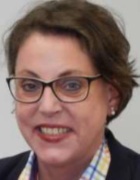
|
Dipl.-Kffr. | Martina | Meven | – | +49 89 289-14255 | |

|
Andrea | Person | – | +49 89 289-14205 | ||

|
Carola | Siegmayer | – | +49 89 289-14216 |
Lehrangebot der Arbeitsgruppe
Lehrveranstaltungen mit Beteiligung der Arbeitsgruppe
Abgeschlossene und laufende Abschlussarbeiten an der Arbeitsgruppe
- Alternative qubit readout using multi-mode circuits
- Abschlussarbeit im Masterstudiengang Quantum Science & Technology
- Themensteller(in): Stefan Filipp
- Automation of the Characterization and Calibration of a 16 Qubit Chip
- Abschlussarbeit im Masterstudiengang Quantum Science & Technology
- Themensteller(in): Stefan Filipp
- Broadband electron spin resonance spectroscopy of 167Erbium spins in Silicon
- Abschlussarbeit im Bachelorstudiengang Physik
- Themensteller(in): Rudolf Gross
- Characterization of Aluminum-based Nanomechanical String Resonators for Nonlinear Nano-electromechanical Quantum Circuits
- Abschlussarbeit im Bachelorstudiengang Physik
- Themensteller(in): Hans-Gregor Hübl
- Chiraler Transport in supraleitenden Qubitringen
- Abschlussarbeit im Masterstudiengang Quantum Science & Technology
- Themensteller(in): Stefan Filipp
- Design and simulation of a frequency tunable 3D cavity for cat state generation
- Abschlussarbeit im Bachelorstudiengang Physik
- Themensteller(in): Hans-Gregor Hübl
- Development of Superconducting On-Chip Low-Pass Filters for Protection of Fluxonium Qubits
- Abschlussarbeit im Bachelorstudiengang Physik
- Themensteller(in): Stefan Filipp
- Drehimpulstransport mit Magnonen
- Abschlussarbeit im Bachelorstudiengang Physik
- Themensteller(in): Matthias Althammer
- Angular Momentum transport between separated ferromagnets
- Abschlussarbeit im Bachelorstudiengang Physik
- Themensteller(in): Matthias Althammer
- Limits on Kerr Nonlinearity and Photon Loss for the Initialization and Readout of a Kerr-cat Qubit
- Abschlussarbeit im Bachelorstudiengang Physik
- Themensteller(in): Stefan Filipp
- Magnetostatische Moden in Yttrium Eisen Granat und Nickel Zink Ferrit Kuglen
- Abschlussarbeit im Bachelorstudiengang Physik
- Themensteller(in): Hans-Gregor Hübl
- Micromagnetic simulation of nanogratings as possible devices for unidirectional spin wave propagation
- Abschlussarbeit im Masterstudiengang Physik (Physik der kondensierten Materie)
- Themensteller(in): Rudolf Gross
